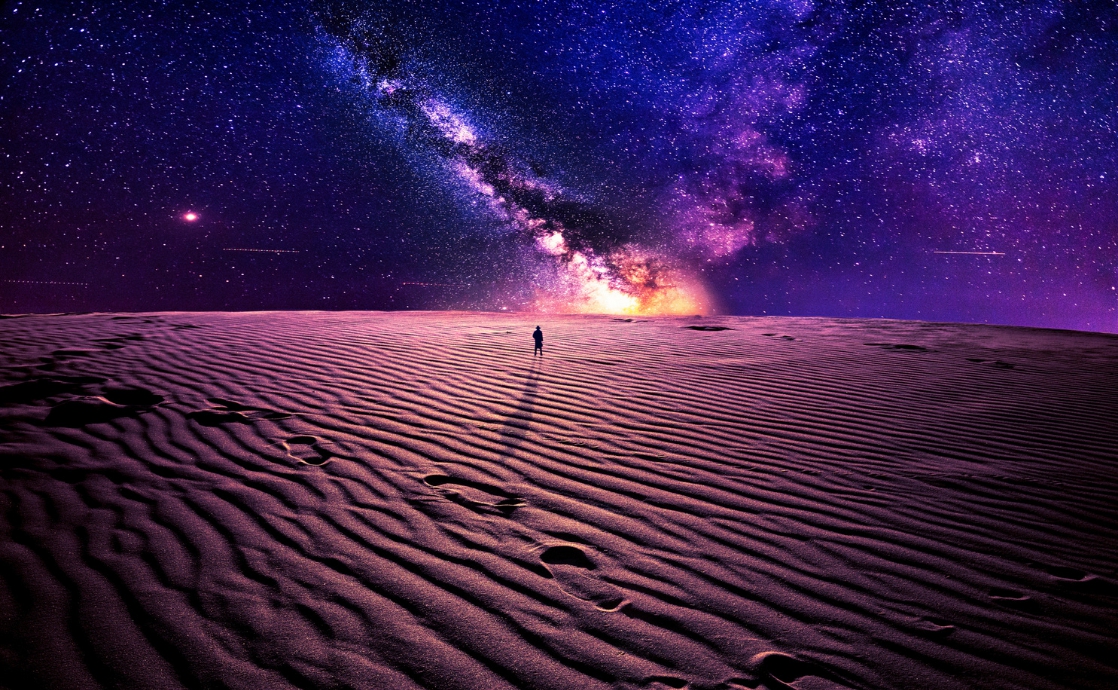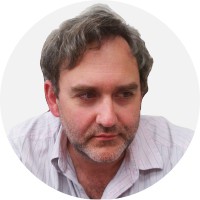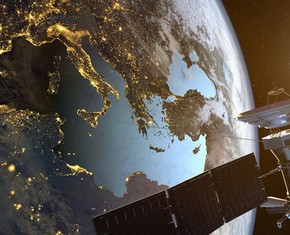The views expressed in our content reflect individual perspectives and do not represent the authoritative views of the Baha'i Faith.
The question of “being” is one of the oldest and most long-standing questions in all philosophy, and in all theology, too. Is there a Supreme Being? Why do we exist, and what brought us into being?
In his seminal book Some Problems of Philosophy the influential philosopher William James summarized the question this way: “How comes the world to be here at all instead of the nonentity which might be imagined in its place? … from nothing to being there is no logical bridge.”
RELATED: The Baha’i Teachings and the Experience of Being
In the middle ages the famous Persian polymath Avicenna addressed this question in a manner which the Baha’i writings seem to have echoed.
Avicenna created the so-called “floating man” thought experiment, where he imagined a person brought into being in empty dark space with no sensory input or memories and asked: does this individual experience being? If he does, then being does not require the operation of the senses, existence of memories, or anything physical outside of his soul.
Centuries later Descartes would propose a somewhat similar notion, claiming famously “I think, therefore I am.”
The Baha’i teachings touch directly on that classical definition of being. Baha’u’llah, the prophet and founder of the Baha’i Faith, wrote this passage about the Creator, who “called into being a creation:”
A drop of the billowing ocean of His endless mercy hath adorned all creation with the ornament of existence, and a breath wafted from His peerless Paradise hath invested all beings with the robe of His sanctity and glory. A sprinkling from the unfathomed deep of His sovereign and all-pervasive Will hath, out of utter nothingness, called into being a creation which is infinite in its range and deathless in its duration. The wonders of His bounty can never cease, and the stream of His merciful grace can never be arrested.
That Creator, the Baha’i teachings say, is unreachable, unlimited, and unknowable. In his last speech during his tour of North America Abdu’l-Baha, the son and successor of Baha’u’llah, explained the reality of our beings with the Supreme Being:
… it is quite evident that our kind of life, our form of existence, is limited and that the reality of all accidental phenomena is, likewise, limited. The very fact that the reality of phenomena is limited well indicates that there must needs be an unlimited reality, for were there no unlimited, or infinite, reality in life, the finite being of objects would be inconceivable.
This abstruse, subtle proof of the existence of a Creator shows that our limited beings would not be possible to even conceive of without an unlimited Creator, just as poverty could not exist without wealth and ignorance could never exist without knowledge.
The Modern Critique of Being
David Hume, the 18th Century British Empiricist philosopher, later questioned the assumptions behind the experience of “being” made by both Avicenna and Descartes in his A Treatise of Human Nature:
For my part when I enter most intimately into what I call myself, I always stumble on some particular perception or other, of heat or cold, light or shade, love or hatred, pain or pleasure. I never can catch myself at any time without a perception, and never can observe anything but the perception.
To Hume it was not quite self-evident that “being” can exist, deprived of the possibility of observation or sense.
The 20th century Existentialist philosopher Jean-Paul Sartre, added to the debate in his challenging book Being and Nothingness, which began with Hume’s observation of being as rooted in perception. Via a very complicated train of thought Sartre defined “being” as both an expression of freedom and nothingness:
Freedom is the human being putting his past out of play by secreting his own nothingness. It must be clearly understood that this original necessity of being its own nothingness does not belong to consciousness intermittently and on the occasion of particular negations. This does not happen just at a particular moment in psychic life when negative or interrogative attitudes appear; consciousness continually experiences itself as the nihilation of its past being.
Here free-will and self-awareness form an intrinsic aspect of consciousness. This view challenged the Freudian conception of a subconscious acting without free-will or self-awareness.
Consciousness: Real or an Illusion?
In the modern age many have taken as literal Sartre’s claim of consciousness as nothing. Skepticism about the very existence of consciousness has been carried to an extreme with a popular claim that the experience of being and consciousness is some sort of illusion and thus not a real thing.
But a little reflection on our private experience of consciousness indicates that there is a real experience of “being” in the universe. Each of us has had that direct experience every day of our lives. Though one could claim that all other exterior experiences of “being” are illusions, one cannot make the same claim about one’s own experience. This is because while perception can be deceived, the fact of deception requires the existence of a thing which is deceived. Thus, the premise that the experience of being is an illusion is logically fallacious.
Abdu’l-Baha clarified this matter in his book Some Answered Questions, when he said we all have intuitive or existential knowledge:
… the mind and spirit of man are aware of all his states and conditions, of all the parts and members of his body, and of all his physical sensations, as well as his spiritual powers, perceptions, and conditions. This is an existential knowledge through which man realizes his own condition. He both senses and comprehends it, for the spirit encompasses the body and is aware of its sensations and powers. This knowledge is not the result of effort and acquisition: It is an existential matter …
Further, if we accept that this experience of being is real, then it must also be a property of the universe. Or, as Abdu’l-Baha explained in his letter to the renowned scientist Dr. Auguste Forel:
Should any one suppose that man is but a part of the world of nature, and he being endowed with these perfections, these being but manifestations of the world of nature, and thus nature is the originator of these perfections and is not deprived therefrom, to him we make reply and say: the part dependeth upon the whole; the part cannot possess perfections whereof the whole is deprived.
Further if we do not believe that this experience is unique to our person alone, then this property can be manifested as a part of other processes in the universe outside of our own experiences.
RELATED: The Deep Spiritual Meaning of the Word “Create”
When We Gaze into the Universe, Do We Change It?
One of the profound and unsolved mysteries of cosmology involves the origin of order or initial entropy at the birth of the universe. It is speculated that the primal order or entropy of the universe originated in the quantum fluctuations of the vacuum. However, these random fluctuations can only be manifested as a result of a measurement process. Thus, this aspect of mind – observation – might be involved in the very primal creative act of our universe, linking it to the very experience of “being.”
There is in fact more to the process of observation or measurement than what Hume or Avicenna could have understood in their respective ages. The emergence of quantum mechanics in the early twentieth century placed the act of measurement or observation in a new light.
Measurement, scientists learned, could cause the collapse of the state function into one of many possible states. Measurement was also what injected new information into the universe. Thus, observation is not the passive thing it once was thought to be. Instead, observation is an active force, modifying the universe in a real and irreversible manner.
The act of measurement also requires the formation of memories, since the creation of memories and measurement are synonymous, only differing in their implied time scale of data retention. Thus, measurement is also linked to another fundamental aspect of mind, memories. So perhaps Hume was on the right path, yet he couldn’t know the potentiality for real transcendence in the humble process of observation.
Quantum mechanics also sheds new light on Avicenna’s “floating man” thought experiment, since the conclusion is that being is somehow independent of observation. Yet as is now well-understood in the quantum mechanical process of measurement – the measurement of a lack of a thing is still a measurement. So, for example in the measurement of the lifetime of a given quantum mechanical object the non-measurement of decay still collapses the state function, modifying it in a way that can actually extend the lifetime and even prevent its decay in the future. This is known as the Quantum Zeno effect.
So even in the case of the floating man’s presence in a sensory-less void, his senses are still involved in the process of measurement. Indeed it would seem that “being” cannot be conceived of without the act of observation.
















Comments
Sign in or create an account
Continue with Googleor